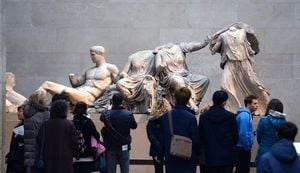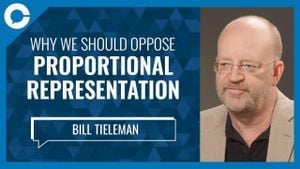Recently, tensions between Bangladesh and India flared up following an attack on the Bangladesh Assistant High Commission premises in Agartala, Tripura. This incident has prompted the Bangladeshi government to take formal diplomatic action, which has seen the Indian High Commissioner, Pranay Verma, summoned to the Ministry of Foreign Affairs (MoFA) in Dhaka. The summoning was officially described as a protest against what officials have labeled as an aggressive, pre-planned assault.
The attack reportedly occurred on the morning of December 2, when supporters of the Hindutva-oriented Hindu Sangharsh Samiti stormed the premises, demonstrating against alleged minority persecution in Bangladesh. Witnesses described scenes of chaos as protesters vandalized property and raised concerns over the safety and security of the diplomatic enclave. The motivations behind these protests were rooted partly in the recent arrest of Hindu monk Chinmoy Krishna Das, which had seemingly sparked outrage among certain groups.
Bangladesh Foreign Minister, M Riaz Hamidullah, met with Verma on Tuesday afternoon, categorizing the protest as deeply regrettable and emphasizing the need for accountability. "This incident violates the Vienna Convention on diplomatic relations, which protects consular properties," asserted the Bangladeshi officials during the meeting. They expressed their deep anger over the occurrence, making it clear this was not just petty vandalism, but rather, what they considered to be state-sponsored hostility.
Verma's presence at the foreign ministry was noted, arriving at around 3:15 p.m. for discussions with Hamidullah. Following the meeting, Verma attempted to downplay the incident, referring to it as part of their "regular exchanges". He stated, "We have maintained a lot of positive momentum in the relationship. We are willing to engage with the interim government of Bangladesh and remain interested in working with Bangladesh to fulfill our shared aspirations for peace, security, and development." This distinction between the incident and broader diplomatic ties reflects the complexity of relations between the two nations, which have been strained by local tensions.
While Verma expressed India's commitment to maintaining good relations, the Bangladeshi government has taken this moment to reassert its sovereignty. Law Affairs Adviser of the interim government, A. Nazrul, emphasized this point, stating, "Bangladesh is driven by a fearless and dynamic younger generation, and we will not stand to see our rights trampled upon. This is not Sheikh Hasina's Bangladesh; we want equal footing and mutual respect." Nazrul's comments underline the shifting dynamics after the recent political upheaval, which saw former Prime Minister Sheikh Hasina flee to India amid public outcry over her government’s policies.
Subsequent to the protest and its fallout, the Indian Ministry of External Affairs voiced its own concerns, labeling the attack as "unfortunate" and stating, "Diplomatic and consular properties should never be targeted under any circumstances." To mitigate escalation, Indian authorities moved swiftly, apprehending seven individuals linked to the assault and initiating disciplinary action against four police officers for their inadequate response.
This event follows another protest where hundreds rallied outside the Bangladesh Deputy High Commission in Mumbai, led by the Vishwa Hindu Parishad (VHP), alleging persecution of Hindus in Bangladesh. Sheikh Hasina's government previously adopted pro-India policies, seeking to maintain stability with its neighbor, but the recent shifts have highlighted the fragility of this arrangement and the rising assertiveness of local sentiments.
Bangladesh’s foreign ministry reiterated its call for the prompt and vigilant safeguarding of its diplomatic missions, amid fears such attacks could become more common if tensions continue to rise. Counter protests and heightened security have been established, particularly along the India-Bangladesh border, as each side cautions against the potential for wider conflict.
Looking forward, observers note the importance of diplomatic dialogue. With both nations having significant interdependence—economically and strategically—the path forward will require careful negotiation. Verma’s insistence on the bilateral relationship's potential to flourish, notwithstanding recent turmoil, reflects this delicate balance. The next steps for both governments will likely focus on not only addressing the aftermath of the Agartala attack but also finding solutions to the underlying tensions exacerbated by minority rights and national identities.



